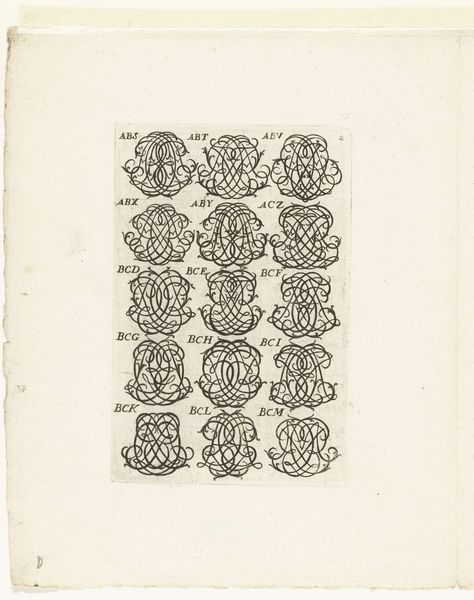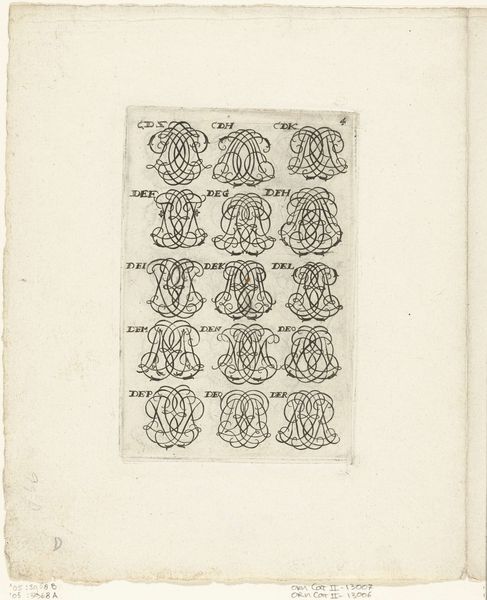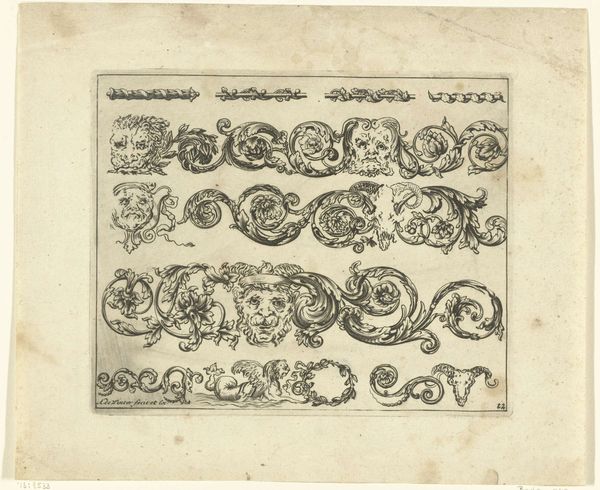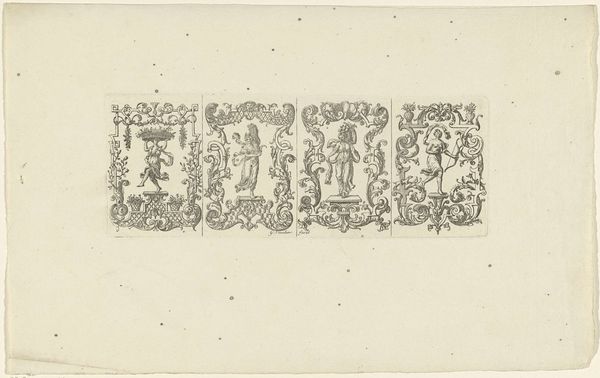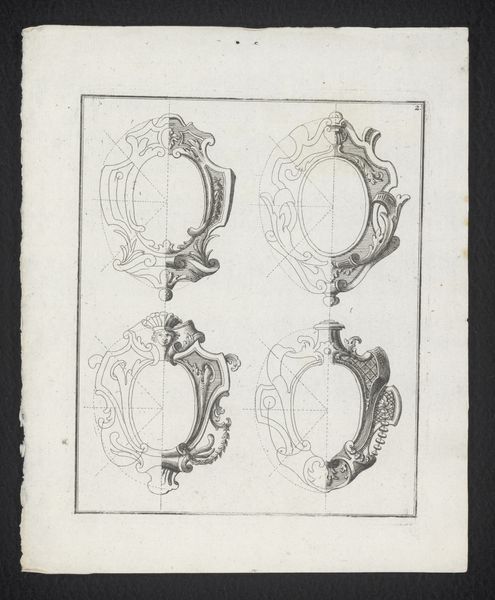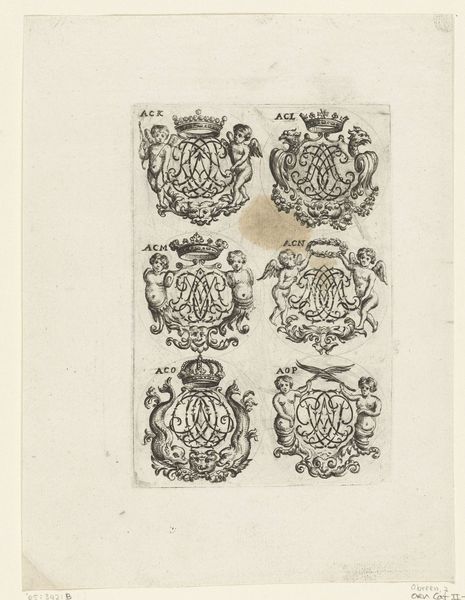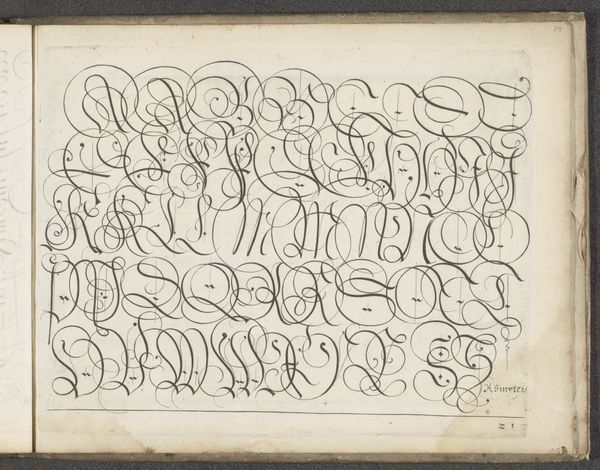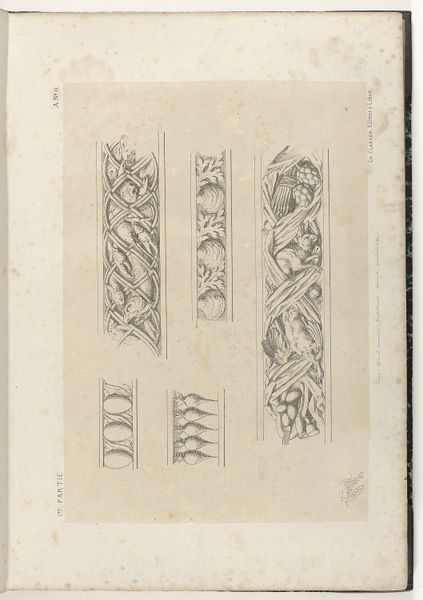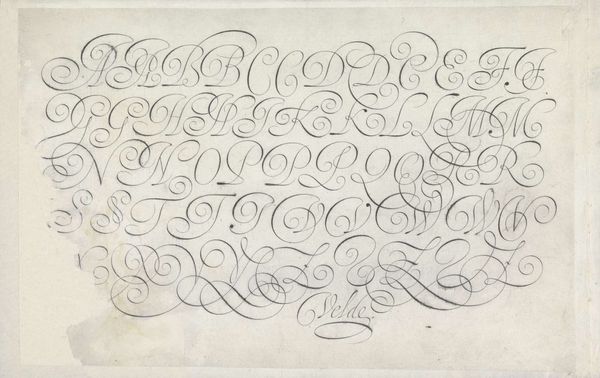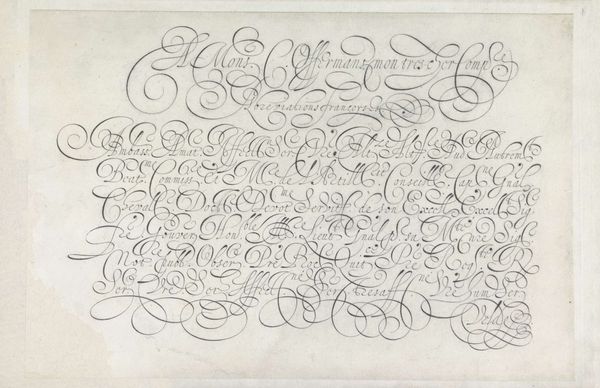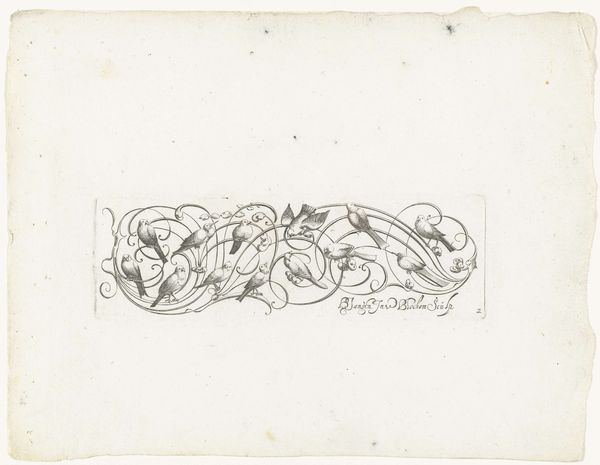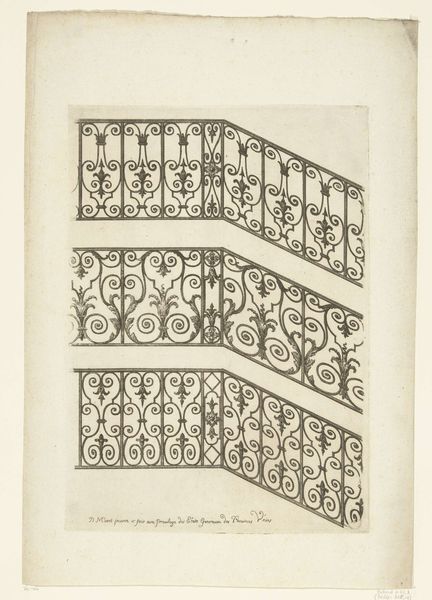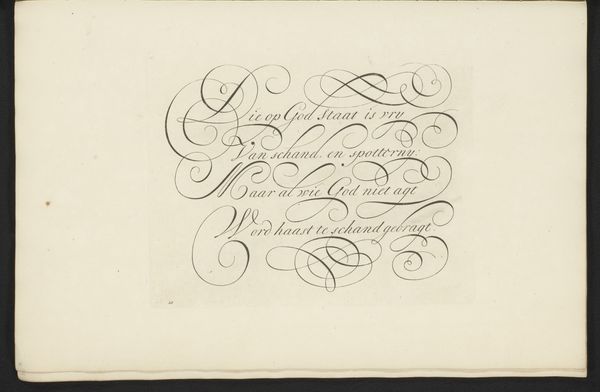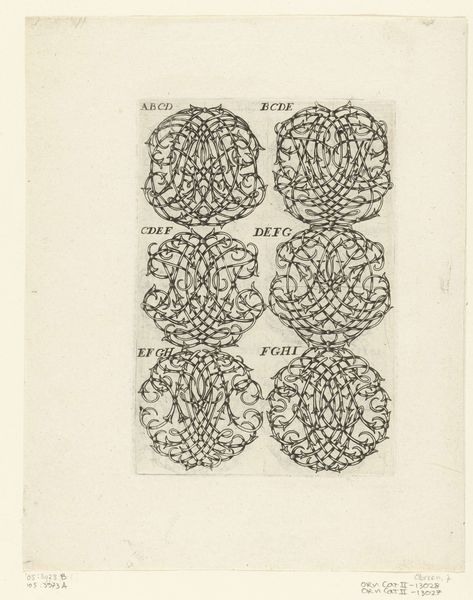
#
comic strip sketch
#
pen sketch
#
old engraving style
#
hand drawn type
#
personal sketchbook
#
ink drawing experimentation
#
pen-ink sketch
#
pen work
#
sketchbook drawing
#
sketchbook art
Dimensions: height 130 mm, width 87 mm
Copyright: Rijks Museum: Open Domain
Curator: Here we have Daniel de Lafeuille’s “Vijftien lettermonogrammen (MNR-NOV),” dating back to around 1690-1691. It's a pen and ink drawing on paper. What's your immediate reaction to it? Editor: Whoa, it’s intricate! Like a page out of someone's secret spell book, or maybe a funky sampler. The overlapping lines create a hypnotizing maze. It is beautiful chaos. Curator: Precisely. Look at the repetition of form, a series of complex monograms. These aren't mere doodles. They were likely studies or designs for decorative initials, perhaps for bookplates or heraldry. Consider the social context: in the late 17th century, elaborate monograms signified status, literacy, and access to artisanal production. Editor: Artisanry…that’s key, right? You can almost feel the steady hand guiding the pen, repeating and refining the shapes. The commitment to that detail…it gives off serious meditative vibes. Also, are they all Ms? They're teasing my pattern recognition skills. Curator: Predominantly, yes, although the letters vary with each monogram. It represents a dedication to the craft and a commission market, it represents the demand for refined artisanal skills during that period. And how each monogram is uniquely constructed shows a deep understanding of lettering and design principles. It’s about material expression as status. Editor: That's a super interesting idea. But what stands out most to me is the artistic license the craftsman enjoyed. Like he or she could imbue each little glyph with unique, tiny explosions of their artistry. Curator: And of course, remember the means of production. This wasn't mass produced. Each monogram represents a discrete investment of time and skill. That exclusivity further enhanced the work's value within its social setting. Editor: True! Seeing it through that economic lens adds so much depth, almost changes its atmosphere entirely. Suddenly it's not just pretty—it's precious. Curator: Well, precisely. These pieces shed light on the social and economic structures of their time and the lives involved. Editor: Indeed. The blend of labor, art and society... a surprisingly modern feel despite the antiquity. A dizzying glimpse of craft, economy, and a good shot of elegant self-expression.
Comments
No comments
Be the first to comment and join the conversation on the ultimate creative platform.
